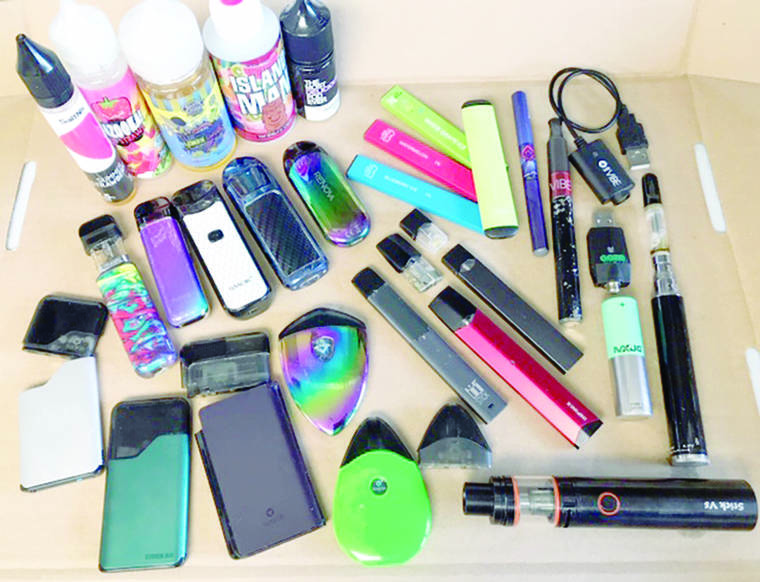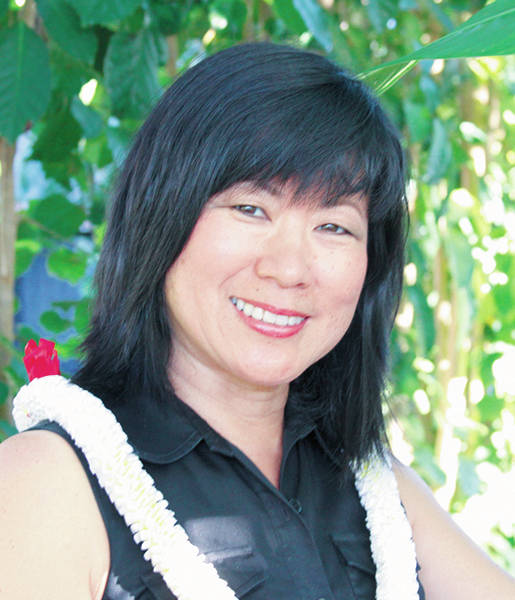LIHU‘E — The U.S. Food and Drug Administration is calling for the removal of fruity flavor from some disposable electronic cigarettes, claiming the company Puff Bar never received permission to sell them in the U.S.
The agency sent letters calling for the removal of certain flavors from the market to Puff Bar and nine other e-cigarette manufacturers, saying they illegally appeal to children. Some of those mimic packaging of sweets and cereals like Twinkies and Cinnamon Toast Crunch, according to Associated Press.
The companies had 15 business days from when they received the letter to take action.
The regulatory action comes months after anti-vaping advocates warned that disposable vapes like Puff Bar were a glaring loophole in the FDA’s ban on flavored e-cigarettes.
That policy, which took effect in February, narrowly targeted reusable vaping devices like Juul, the blockbuster brand that helped trigger the teen-vaping craze in the U.S. Under the policy, only menthol and tobacco flavors were allowed for those devices. But the flavor restrictions did not apply to disposable vaping products like Puff Bar.
Valerie Saiki, Kaua‘i coordinator for the Coalition for a Tobacco-Free Hawai‘i, was relieved to hear the news, but thinks it might be too late for many on Kaua‘i.
“It’s great to see the FDA finally taking action against a company like Puff Bar, but in reality, it’s a case of too-little-too-late,” said Saiki. “Allowing illegal flavored disposables to market, distribute and sell their products for over a year has had a steep cost.”
Saiki said Puff Bar and similar companies fully took advantage of manufacturing company JUUL’s implosion in 2019 and essentially filled the void for a cheap nicotine fix with a multitude of fruity and minty flavors clearly aimed at youth.
Saiki said these companies marketing their illegal products made millions of dollars at the expense of increasing teens’ addiction to nicotine.
“Taking action now is critical,” said Saiki. “We need to pass policies to regulate e-cigarettes and work to educate our communities on the harms of tobacco products.”
According to the FDA, among middle- and high-school students, over five million were current users of e-cigarettes in 2019, and almost one million were using the e-cigarettes daily.
FDA said in a 2013-2014 survey that 81% of current youth e-cigarette users cited the availability of appealing flavors as the primary reason for use.
State Rep. Nadine Nakamura is excited about the news, but also thinks more should be done.
“I’m glad the FDA finally did something about vaping. It isn’t enough, since it only targets disposable flavored e-cigarettes,” said Nakamura. “It’s a step, however, in the right direction. “
Nakamura said the legislature did not pass a vaping bill this session that was poised to ban flavored e-cigarettes and impose mandatory education and minimal fines if students are caught with vaping products on campus.
“We need to find a way to prevent children and teens from easily accessing e-cigarettes via irresponsible adults and online shipping,” said Nakamura. “We should also be imposing higher taxes that would go toward much-needed education on what this does to your lungs and body.”
The state Legislature confirmed that no e-cigarette bills were passed this session due to the coronavirus pandemic.
Lawmakers needed to focus on the priorities of health and safety, and budget and social concerns, according to a spokesperson for the Legislature.
State Rep. James Tokioka shares the same excitement as Nakamura, and supports the FDA’s decision to dispose of unlicensed fruity flavors of e-cigarettes.
“I support that 100% when it comes to fruity-flavored vape fluids,” said Tokioka. “I know that there is some adults that like that, but our kids in no way should be vaping or getting addicted to that kind of product. It is unhealthy for our community.”
All U.S. vaping companies face a September deadline to submit their products for FDA review, according to the Associated Press. The long-delayed process is part of the FDA’s years-long effort to regulate the multibillion-dollar vaping industry, which includes thousands of e-cigarette devices and nicotine solutions.
For months, the FDA has been consumed with the coronavirus outbreak, reviewing new tests and treatments. Earlier this year, the agency suspended in-person inspections at vape shops and convenience stores aimed at enforcing sales restrictions. Late last year, the U.S. raised the legal age to purchase e-cigarettes and all other tobacco and vaping products from 18 to 21.
•••
Stephanie Shinno, features and community reporter, can be reached at 245-0424 or sshinno@thegardenisland.com. The Associated Press contributed to this report.








If sweet flavors are only to attract teens, then why isn’t flavored alcohol being banned? You can buy vodka in almost every flavor imaginable. A flavor ban won’t change whether or not teens vape anyway. I smoked in high school and I didn’t remotely care about the flavor or brand. I smoked whatever I could get my hands on. A flavor ban is only going to hurt the people who are vaping legally. If you can only vape tobacco flavors, people are going to want the real thing rather than an imitation. Vape users began vaping to get away from tobacco. It’s also going to give rise to black market flavored juice. Once flavors are banned, the value of flavored juice will skyrocket.
Test
A flavor ban is only going to cause vape users to switch back to smoking cigarettes. If you can only vape tobacco flavors, people are going to want the real thing rather than an imitation. Most vape users began vaping to get away from tobacco. It’s also going to give rise to black market flavored juice. Once banned, the value of flavored juice will skyrocket and that’s going to be chaotic. If flavors are only used to attract teens rather than adults, why is flavored alcohol legal? Far more teens drink than use nicotine.
So, illegal fruity vape flavors are a threat but illegal immigrants are welcome with open arms. LOL
Banning flavors is a big push from big pharma because if people stop smoking and stop getting cancer then they lose out on billions of dollars in cancer treatment services, i fully oppose youth vaping but I’m 28 years old and i use both nic salt disposables like puff bar and regular E-Liquid for the big mods and to say that puff bar is targeting kids is inaccurate and slanderous, all the people i know that use nic salt disposables are of age and only use them because they don’t want to deal with the tanks, changing coils, and refilling, and carrying batteries and extra E-liquid with them, kids will find way to get to almost anything they want and its mostly the aspect of having something you cant have is deemed as “cool” among their peers. no vape shop sells to underage kids, either someone old enough to legally purchase is supplying them or gas stations are selling to them, vape shops are doing everything they can to prevent vape products (which were meant for adult smokers to have a healthy alternative to cigarettes) from reaching our youth, look at how many kids get weed, alcohol, other drugs and still cigarettes, don’t scandalize the vape industry to ride out this attention wave and try to boost your status as a writer. write quality content about the things that matter and nobody else is writing on and educate yourself about what your writing instead of regurgitating what you hear on the news.
You want to stop teens then prevent gas stations and smaller mom and pops stores from carrying them not only that but they carry the fake ones too were vape shops card everyone under 21 and do not sell to these kids. Banning all flavors is a joke and taking away our freedoms, why because you allow these smaller stores to sell them unchecked to minors!!!